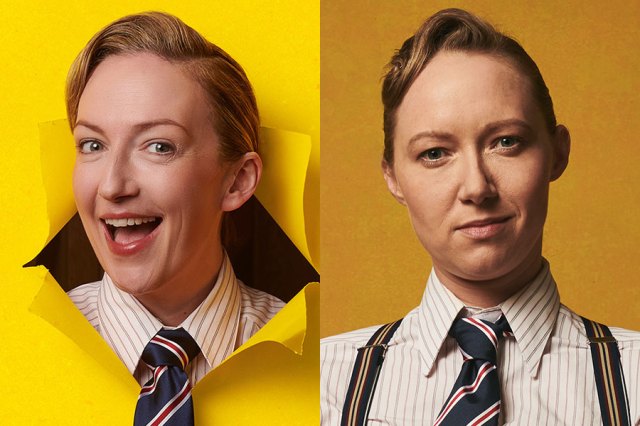La Traviata
The Merry Opera Company
Moving a classic out of its historic setting is always a gamble. West Side Story and Jonathan Miller’s Rigoletto are two of the most successful approaches to the idea of re-creating a story in a modern context to give it more meaning. There have been many failures, but this new translation and interpretation of La Traviata, the brain child of and directed by Kit Hesketh-Harvey, is certainly not one of them, and deserves to be considered by other opera companies wealthier than The Merry Opera Company.
What Hesketh-Harvey has done is to transpose the action into the modern era making Violetta the star lap dancer in a London night club called La Traviata run by a hard and dangerous Eastern European and frequented by high roller city traders. One of these, Al, turns up one night on a bender and falls for her in a major way. She, to her consternation, finds herself reciprocating his affection. She gives up her work and moves in with him. His reputation suffers and they gradually fall on hard times. She is visited by Al’s father, Jerman, who is a muslim and who is horrified that his son has taken up with an entertainer which has brought disgrace on him and his family, particularly his daughter. He persuades her to leave Al, and, despite the fact that she is suffering from an incurable brain tumour, she returns to work in the night club. Al calls in one evening, sees her there and insults her in front of the clientele and is thrown out of the premises. As her health deteriorates her friends Gaston and Flora move in with her to help her. Al returns realising that he is still in love with her but she is already near death. Al’s father then calls in full of compassion just as she is dying.
The reconstruct works well, although it might have been better if the real reason for Jerman’s anxieties over his son’s relationship was clearer and not signalled by a fleeting glimpse of his daughter wearing the veil.
Unfortunately the experiment failed -not because the concept did not work, but because of the very uneven quality of the musical performances. Although the instrumentalists played well and produced as much colour as was possible with a quintet comprised of violin, viola, ‘cello/double bass, clarinet/saxophone, and keyboard/ accordion, the orchestration was not rich enough to portray the real passion of Verdi’s score. The singers were where the real problem lay. The opening drinking chorus was well sung, and the voice of Claire Egan (Violetta) soared beautifully above the chorus. Following on this, the duet with Al (Robin Bailey) was very musical and well acted but Bailey’s voice lacked the passion with which the role of Alfredo is associated, he came into his own in the final duet which was sung with great beauty of tone and real passion. I left the theatre feeling that he had not sung as well as he might, for whatever reason. The other minor roles, doubling as chorus, were very acceptable, with a particularly interesting performance by Kristin Finnigan (Flora). Unfortunately, the role of Jerman, which is so pivotal to the whole work, was very poorly performed and badly sung. In his scene with Violetta when he is asking her to leave Al and explaining the disastrous effect her relationship will have not just on his son, but worse still on his daughter, Matthew Quirk’s performance was embarrassing.
– John Bird
www.merryopera.com












